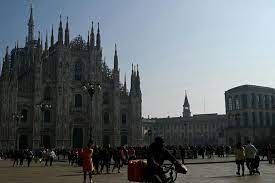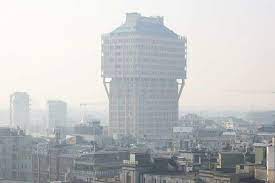Lack of rain leaves Italy gasping

Rome: A blanket of smog covers Milan, empty reservoir bake in Sicily and wine production is down in Piedmont as a lack of rain across Italy exacerbates pollution and sparks droughts.
Gas-guzzling cars were banned from roads on Tuesday in Milan and eight other cities across Lombardy after the northern Italian industrial region registered high levels of particle pollution that is dangerous for health.

The region, home to many intensive livestock farms, also banned the customary spraying of animal waste onto fields, a practice that causes high nitrate pollution.
Northern Italy has ranked among the most polluted areas in Europe for many years.
Part of Lombardy’s problem is geographic — it sits in a basin between mountains, which means it is poorly ventilated.
But clean air campaigners say this handicap is too often used as an excuse by authorities for high levels of air pollution.
High particulate levels were also registered in the capital, Rome.
Regions across Italy are suffering drought or severe lack of rainfall.
Snow levels were down in both the Alps and Apennines.
The Italian snow water equivalent — the equivalent amount of water stored in the snow pack — is down 64 percent this month compared to a year earlier, according to the CIMA Research Foundation.
The lack of rainfall is aggravating an already difficult situation, following heatwaves last year which lowered reservoir levels and drove up water consumption.
Sicily declared a natural disaster over drought earlier this month, while on the island of Sardinia, farmers are limited in how much water they can use.
Reservoir levels there are down 23 percent compared to the average over the last 14 years.
The southern regions of Puglia and Basilicata are also suffering, with farmers’ association Coldiretti warning this weekend that warm temperatures have woken thousands of bees early.
This threatens the pollination of some crops because the bees are out of sync with the flowering period of plants from which they gather pollen.
Meanwhile Piedmont in the northwest asked the agricultural ministry on Monday to declare a natural disaster for drought in the region, saying it has affected vineyards and caused “significant” drops in wine production.
Experts say climate change driven by human activity is boosting the intensity and frequency of extreme weather events, such as heatwaves, droughts and wildfires.
Planet-heating emissions, mainly from the burning of fossil fuels, have risen in recent years. Scientists say they need to fall by almost half this decade.





